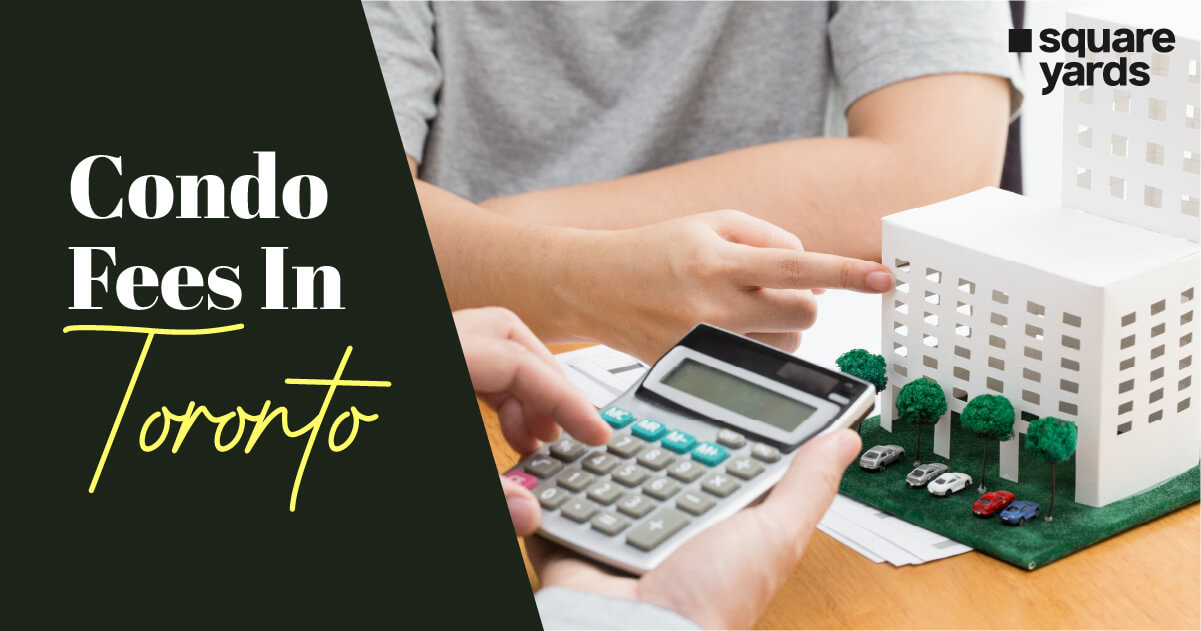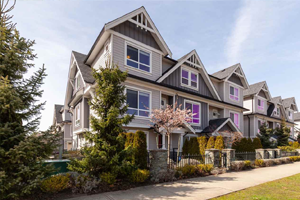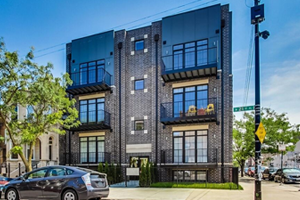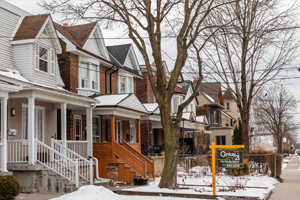Condo living offers a unique blend of urban convenience and community living but includes additional expenses beyond mortgage payments and property taxes. Condo fees in Toronto, also known as maintenance fees or strata fees, are monthly charges paid by all condo owners. It is paid in order to cover the shared costs of maintaining and operating the condominium complex.
Understanding Easement
In the world of property rights, easements play a crucial role in defining how land can be used and accessed. An easement is a legal right granted to one person or entity to use another person’s property for a specific purpose. This right of use is non-possessory, meaning that the easement holder does not own the property but has the right to use it in a limited way. Easements are essential tools in property law, defining how different parties can use and access land. Understanding the concept of easements is crucial for property owners, developers, and real estate professionals alike.
Decoding Condo Fees
Condo fees, also known as maintenance fees or strata fees, are monthly charges paid by all condo owners to cover the shared costs of maintaining and operating the condominium complex. These fees encompass a wide range of expenses, including building maintenance and repairs, utilities, common area upkeep, insurance, and a reserve fund for future major expenses. The amount of condo fees in Toronto charged can vary significantly depending on the age, size, and amenities of the building, as well as its location.
As a condo owner, you must pay condo fees promptly and comply with the corporation’s bylaws and rules. By understanding the purpose and scope of condo fees, you can make informed decisions about your finances and living space.
What Is Included In Condo Fees in Toronto?
When purchasing a condominium, one often encounters the term “condo fees.” It is a monthly expense that plays a crucial role in maintaining the overall condition and amenities of the condominium complex. But what exactly do condo fees in Toronto cover? Building maintenance and upkeep, utilities, insurance, reserves, special assessments, and administrative costs are all covered by condo fees. This ensures the structural integrity and functionality of the shared building elements, maintains common areas, covers shared utilities, protects against damage and accidents, provides a financial buffer for unforeseen expenses, and supports the management of the condominium corporation.
Understanding the components of condo fees is essential for potential condo buyers and current residents alike. By grasping the breakdown of these expenses, individuals can make informed decisions about their financial commitments and appreciate the value the condo association provides in maintaining a well-maintained and enjoyable living environment.
Understanding When And Why Condo Fees Increase
Condominium living provides homeowners with the benefits of a private residence while sharing the upkeep of common areas and amenities. However, one aspect of condo ownership that often raises concerns is the potential for condo fee increases. While these increases can be frustrating, understanding the reasons behind them can help homeowners make informed decisions. Condo fee increases can occur at various times, depending on the needs of the condominium association. In some cases, fee increases may be planned and announced in advance, typically at the beginning of the budget cycle. However, unexpected expenses or changes in market conditions may necessitate a more immediate fee adjustment. Several factors can contribute to the need for condo fee increases. These factors can broadly be categorised into operational costs and amenities & additional services.
Operational Costs
A primary driver of condo fee increases is the rising cost of maintaining and operating the condominium complex. Inflation plays a significant role, as the prices of goods and services, such as labour, utilities, and repairs, tend to increase over time. Additionally, the ageing of the building’s infrastructure may necessitate more frequent and costly repairs, further contributing to the overall expenses.
Amenities and Additional Services
The availability of amenities and additional services can also influence condo fee increases. If the condo association decides to introduce new amenities or enhance existing ones, such as adding a fitness centre, pool, or concierge service, the associated costs will be reflected in the condo fees. Condominium associations are subject to various legal requirements and regulations, which may involve inspections, certifications, and compliance measures. The costs associated with these obligations and the rising premiums for property and liability insurance can also contribute to condo fee increases.
Condo Fee Breakdown: A Detailed Look at What You’re Paying For
The operating expenses that contribute to a condominium budget can vary significantly from one building to another. Some buildings opt to include utilities such as hydro, water, and cableTV/internet in their common expenses. In contrast, others may only cover the bare necessities like building insurance and maintenance/management costs. The condominium board typically makes these decisions and may also have been influenced by the original builder’s intentions. For instance, if the developer installed individual hydro metres for each unit, then hydro would not need to be shared via condo fees.
It is crucial to carefully review the MLS listing to determine which expenses are included in the condo fee. This information is essential for accurately estimating your monthly housing costs. Banks typically factor in expenses not covered by condo fees when calculating debt service ratios.
How Unit Size Affects Condo Fees in Toronto
The size of the unit you choose can significantly affect the amount you’ll pay in condo fees. The reason for this is straightforward: larger units typically consume more utilities and require more maintenance, thus driving up common expenses. While unit size is a primary factor influencing condo fees, it’s not the sole determinant. Other elements, such as the building’s amenities, location, and overall condition, also play a role. However, understanding the connection between unit size and condo fees can empower potential condo buyers to make informed decisions.
Applicability Of GST/HST To Condo Fees
In general, GST/HST does apply to condo fees, but a few exemptions may apply, potentially alleviating the tax burden for some condo owners. To ascertain whether GST/HST applies to your condo fees, consider the following factors:
-
- Type of Unit: If your unit is primarily used for residential purposes, the Section 13 exemption may apply.
- Condo Corporation’s Annual Revenue: If the condominium corporation’s total taxable supplies for the year fall below the small supplier threshold, the small supplier rule may apply.
- Condo Corporation’s Status: GST/HST does not apply to its supplies if the condominium corporation is a registered charity.
Navigating the intricacies of GST/HST in condo fees can be a bit perplexing, but understanding the applicable exemptions and rules can empower you to make informed decisions as a condo owner. Always carefully review your condo fee breakdown and consult a tax professional if further questions arise.
Can You Expense Condo Fees in Toronto?
As a condominium owner, you’re well aware of the monthly or quarterly condo fees that contribute to the upkeep and maintenance of the common areas, amenities, and overall infrastructure of your condominium complex. But what about tax time? Can you expense these fees to reduce your taxable income? The answer to this question depends on your tax situation and the type of expenses covered by your condo fees. The ability to expense condo fees hinges on whether you claim them as a rental expense or as part of your primary residence deductions. If you rent out your condominium unit, your condo fees are considered a rental expense and can be deducted from your taxable rental income. This deduction is permitted because condo fees are considered necessary expenses to manage and maintain the rental property.
While condo fees are an inevitable part of condominium ownership, understanding their potential tax implications can help you navigate tax season more effectively. Remember, the key lies in determining whether you’re expensing condo fees as a rental expense or as part of your primary residence deductions. Consulting with a tax professional can provide valuable guidance and ensure you take advantage of all applicable deductions.
Condo Fees and Their Impact on Rents
Condo fees play a significant role in determining the overall rental price of a condominium unit. When setting rent, landlords consider various factors, including the size and location of the unit, the amenities offered by the condominium complex, and the prevailing market conditions. Condo fees are also factored into the rental equation, representing a monthly expense landlords must cover.
In general, higher condo fees can lead to higher rent prices. This is because landlords need to recoup the costs associated with the condo fees, and they often pass these expenses on to tenants in the form of higher rent. However, it’s important to note that condo fees are not the sole determinant of rent; other factors, such as the desirability of the location and the amenities offered, also play a significant role.
Embracing The Condo Life As An Owner
Condo living has become a popular choice for individuals and families seeking a unique blend of privacy and community. Condominiums also provide access to shared amenities and common areas, fostering a sense of belonging and connection among residents. However, this lifestyle comes with certain responsibilities, particularly adhering to condo rules and regulations established by the homeowners association (HOA). These guidelines aim to ensure the harmonious operation and maintenance of the condominium complex, covering a wide range of aspects, including noise restrictions, pet policies, parking regulations, use of common areas, and alterations to individual units.
Beyond these responsibilities, condo living presents a multitude of benefits. Condominiums often boast an array of amenities, such as swimming pools, fitness centres, and outdoor spaces, providing residents with convenience, leisure opportunities, and a sense of well-being. Moreover, condo ownership relieves individuals from the burden of day-to-day maintenance and upkeep of the building and common areas, as these tasks fall under the purview of the HOA. Over time, condo values tend to be appreciated, making them a sound investment. Finally, condominium buildings often employ enhanced security measures, including controlled access entrances and security personnel, ensuring residents feel safe and secure.


































